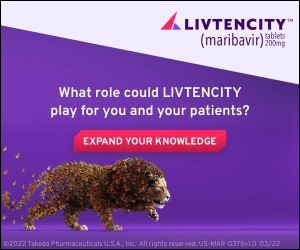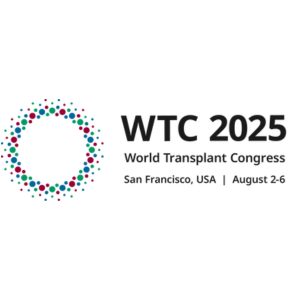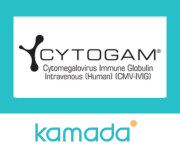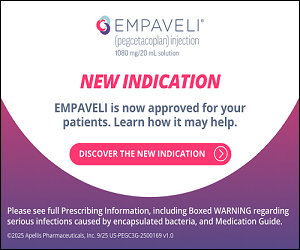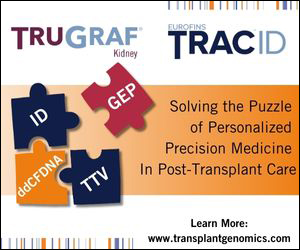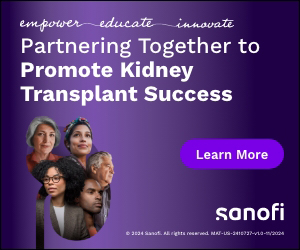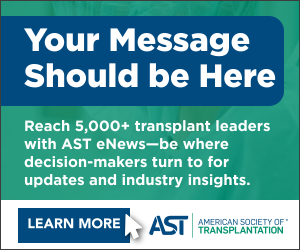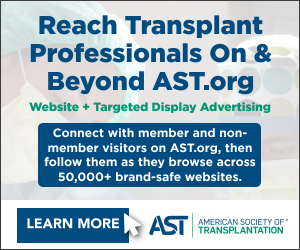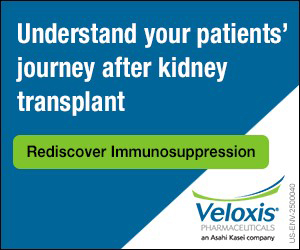 |
||||||||||||||||||||||||||||||||||||||||||||||||||||||||||||||||||||
| Past Issues | Subscribe | Advertise | myAST.org | ||||||||||||||||||||||||||||||||||||||||||||||||||||||||||||||||||||
|
Important Dates
AST News
Fellows Symposium: Registration Open
Registration for the Fellows Symposium on Transplantation is now open! This comprehensive program is designed for clinical fellows and residents, surgical fellows, research fellows, pharmacists, and other trainees planning a career in transplantation medicine, surgery, or research.
Fellows, residents, trainees, and pharmacists who meet the eligibility criteria can apply for a travel grant. Fellows who are ineligible for travel grants may still register as general attendees. Medical students are also welcome to attend. The deadline to apply for a travel grant is July 1. Please encourage your colleagues to apply.
Spread the Word: AST Student Membership - Only $29!
Students can join the AST for just $29 now through June 30! This limited-time offer is a great opportunity to connect with leaders in the field, access valuable educational resources, and explore a future in transplantation.
Know a student who might be interested? Please share this with your network! Medical Directors Forum
Join your colleagues in sharing innovative approaches to clinical practice, gaining insight into transplant finance, and expanding your leadership skills at the AST Medical Directors Forum.
Registration Open for International Transplantation Science 2025
On behalf of the AST, the European Society for Organ Transplantation (ESOT), and The Transplantation Society (TTS), we are excited to announce that registration is officially open for the International Transplantation Science Meeting 2025.
ITS 2025 marks the fourth tri-society event in this global collaboration, bringing together top experts, early-career researchers, and transplant professionals worldwide. This meeting offers an exciting forum to explore cutting-edge basic and translational science in and beyond the field of transplantation. New Resource: AST Mentorship Program
We’re excited to introduce the AST Mentorship Program, a new member benefit designed to foster meaningful, career-shaping connections across the transplant community.
Whether you're looking to give back as a mentor or grow as a mentee, this program supports all transplant professionals — including students and trainees — with a flexible structure that fits your schedule and preferred way to connect: remote, hybrid, or in-person.
The AJT Banff Blog is now live!
The Banff classification is reviewed biennially, during the recurring Banff meetings and updated as new knowledge emerges. We wish to solicit feedback and input from the broad (across organs and disciplines) international transplant community on the 2024 Banff draft meeting and working group progress reports. These reports summarize the most recent updates on the classification and also set direction for future research in the field, addressing unmet needs in transplant diagnostics. In particular, we invite the community to comment on:
The comment period will be open until August 31, 2025. All comments will be reviewed and considered by the Banff meeting report author groups prior to finalizing the manuscripts and submission for formal peer review.
Explore the New Partner Connect Resource Library
The AST is pleased to share the launch of the Partner Connect Resource Library — a curated collection designed to support transplant professionals across specialties. Made possible through the support of our sponsors, this library is accessible to all AST members. Inside, you’ll find:
• Studies – Stay up to date with clinical research and insights
• Whitepapers – Learn from expert-driven content • Webinars – Watch sessions led by trusted transplant professionals Partner Connect is continually evolving to offer AST members meaningful tools for professional growth and collaboration. Log in today and start exploring!
Contact Congress About the Living Donor Protection Act
The Living Donor Protection Act (LDPA) has been reintroduced in Congress, and we need your support. This bipartisan legislation would prohibit insurance discrimination against living organ donors, ensure they can use FMLA leave during recovery, and require updated educational resources to promote donation.
Take action now — urge your lawmakers to support the LDPA.
Make Your Voice Heard: Protect Transplant Research Funding
Funding cuts to the National Institutes of Health (NIH) put critical transplant research at risk. NIH-funded studies have driven advancements in transplantation, improving patient outcomes and paving the way for innovations like new immunosuppressants, immune tolerance strategies, and even organ regeneration. Without this support, progress in the field could slow, affecting countless patients and families.
We need your help to ensure that transplant research remains a priority. Use our advocacy page to contact your members of Congress and urge them to protect NIH funding. Together, we can make a difference. Take action today! AST Public Policy Form
The AST developed a survey aimed at soliciting your perspectives on legislative and regulatory issues that significantly influence both patient care and professional practice. Our goal is to establish a platform for our membership to share their invaluable ideas and perspectives and actively engage with the Public Policy Committee and AST leadership. We look forward to your input as we navigate the dynamics of our ever-evolving landscape of transplant care and practice.
Upcoming Education
Key Articles in Transplantation
Association of Cardiovascular Biomarkers With Cardiac Allograft Vasculopathy and Atherosclerotic Coronary Artery Disease
Background: Cardiac allograft vasculopathy (CAV) remains a barrier to long-term survival after heart transplantation. Little is known about cardiovascular biomarkers in CAV and how they compare to biomarkers in atherosclerotic coronary artery disease (CAD).
Purpose: This study addresses these gaps by investigating the associations of high-sensitivity troponin I and T (hsTnI/T), N-terminal pro-B-type natriuretic peptide (NT-proBNP) and high-sensitivity C-reactive protein (hsCRP) with CAV and CAD. Calcineurin Inhibitor Replacement With Mammalian Target of Rapamycin (mTOR) Inhibitor Following Lung Transplantation
Calcineurin inhibitors (CNIs) are the cornerstone of lung transplant immunosuppression but are associated with nephrotoxicity and other adverse effects. Although dose reduction and combination with Sirolimus, a mammalian target of rapamycin inhibitor (mTORi), have been explored, full conversion to Sirolimus remains uncommon. This study describes the characteristics and outcomes of lung transplant recipients who underwent complete CNI withdrawal and conversion to Sirolimus.
Genomic and Biomarker Innovations in Predicting Kidney Transplant Rejection
Currently, approximately 90,000 patients are on the kidney transplant waitlist in the United States, including 10,000 individuals awaiting re-transplantation due to prior graft failure. Allograft rejection remains a leading cause of kidney transplant failure. While the current gold standard for diagnosing rejection is tissue biopsy, it is invasive and impractical for routine or longitudinal graft surveillance. This review summarizes the current landscape of non-invasive biomarkers for detecting and predicting kidney transplant rejection, with a focus on both historical context and recent advancements. In particular, we highlight the roles of donor-derived cell-free DNA (dd-cfDNA) and gene expression profiling (GEP) in identifying acute rejection. We also discuss emerging biomarkers such as torque teno virus (TTV), which has shown potential as an indirect indicator of immunosuppression levels and rejection risk. Importantly, this review excludes biomarker studies that rely on tissue biopsy, emphasizing non-invasive approaches to rejection monitoring.
Development of a Targeted, Telehealth Intervention: Experiences From the Improving Medication Adherence in Adolescents and Young Adults Following a Liver Transplantation (iMALT) Multisite Trial
Medication non-adherence is a major reason for poor outcomes across chronic diseases. Specifically, it is the most common cause for organ rejection in pediatric liver transplant recipients. Therefore, understanding how to improve adherence through behavior change interventions could lead to substantial health benefits.
|
||||||||||||||||||||||||||||||||||||||||||||||||||||||||||||||||||||
